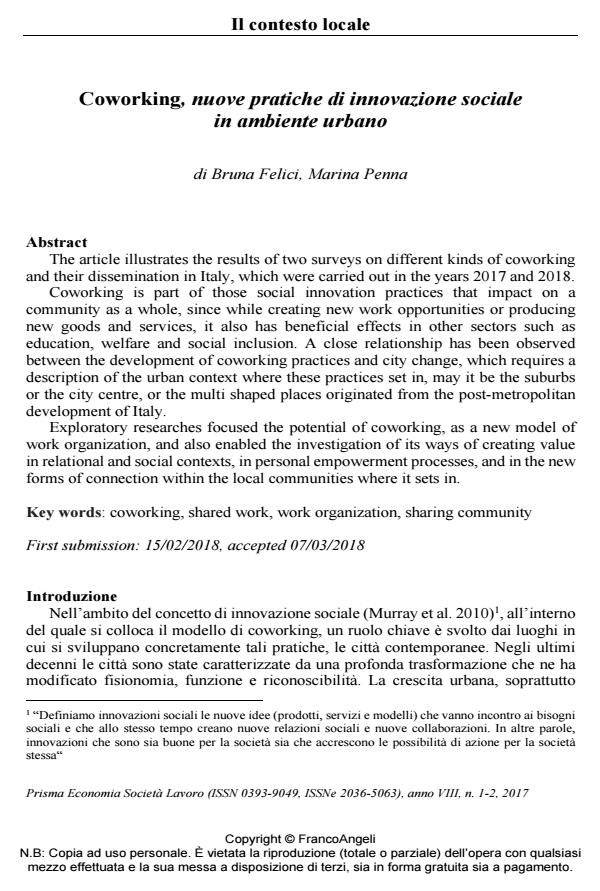Coworking, nuove pratiche di innovazione sociale in ambiente urbano
Journal title PRISMA Economia - Società - Lavoro
Author/s Bruna Felici, Marina Penna
Publishing Year 2018 Issue 2017/1-2
Language Italian Pages 15 P. 39-53 File size 284 KB
DOI 10.3280/PRI2017-001004
DOI is like a bar code for intellectual property: to have more infomation
click here
Below, you can see the article first page
If you want to buy this article in PDF format, you can do it, following the instructions to buy download credits

FrancoAngeli is member of Publishers International Linking Association, Inc (PILA), a not-for-profit association which run the CrossRef service enabling links to and from online scholarly content.
The article illustrates the results of two surveys on different kinds of coworking and their dissemination in Italy, which were carried out in the years 2017 and 2018. Coworking is part of those social innovation practices that impact on a community as a whole, since while creating new work opportunities or producing new goods and services, it also has beneficial effects in other sectors such as education, welfare and social inclusion. A close relationship has been observed between the development of coworking practices and city change, which requires a description of the urban context where these practices set in, may it be the suburbs or the city centre, or the multi shaped places originated from the post-metropolitan development of Italy. Exploratory researches focused the potential of coworking, as a new model of work organization, and also enabled the investigation of its ways of creating value in relational and social contexts, in personal empowerment processes, and in the new forms of connection within the local communities where it sets in.
Keywords: Coworking, shared work, work organization, sharing community
Bruna Felici, Marina Penna, Coworking, nuove pratiche di innovazione sociale in ambiente urbano in "PRISMA Economia - Società - Lavoro" 1-2/2017, pp 39-53, DOI: 10.3280/PRI2017-001004